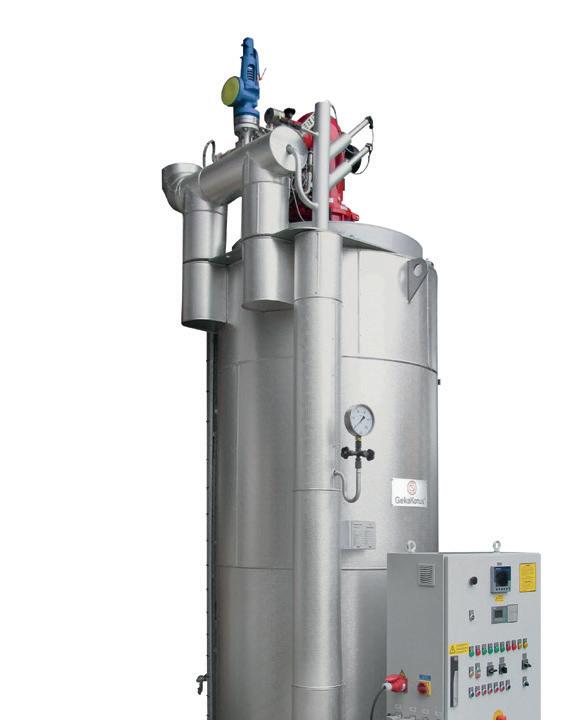
2 minute read
TotalEnergies to expand processing of wastes
Global energy firm TotalEnergies has approved a plan to further expand processing of renewable feedstocks at its La Mède biorefinery near Marseille, France, Oil&Gas Journal wrote on 3 July.
During the plant’s first major scheduled shutdown scheduled for next year, the company would be conducting a US$76M upgrade to enable increased processing of waste feedstocks, including used cooking oils (UCO) and animal fats, TotalEnergies was quoted as saying in late June.
The upgrade continued the company’s ongoing transformation of the La Mède site, Bernard Pinatel, managing director of TotalEnergies’ Refining-Chemicals division, said. Started in 2015, US$370M was invested to convert the site’s former 153,000 bpd conventional refinery into France’s first biorefinery, which was commissioned in 2019, Oil&Gas Journal wrote.
According to the TotalEnergies’ website, the La
Mède biorefinery produces 500,000 tonnes/year of renewable diesel from a range of feedstocks, including rapeseed and other vegetable oils, as well as waste feedstocks such as UCO and animal fats.
Since 1 January, TotalEnergies had stopped processing palm oil and palm fatty acid distillate (PFAD), and the company said the La Mède biorefinery’s updated 650,000 tonnes/year feedstock supply plan from the start of the year would include a maximum of 450,000 tonnes/year of vegetable oils of all kinds (excluding palm oil), with a minimum 25% of feedstock resources to come from waste and residues (excluding PFAD).
On 7 June, TotalEnergies also announced it would double production of sustainable aviation fuel (SAF) at its Grandpuits site in Normandy, increasing production capacity there to 285,000 tonnes/year, almost double the capacity in 2020.
High costs slow US renewable diesel sector
The US renewable diesel sector is slowing due to surging commodity and labour costs, according to an 8 June Bloomberg report.
Against this backdrop, global agribusiness giant Cargill was quoted as saying it had suspended plans to build a giant soyabean processing plant in Hayti, Missouri, due to “shifting market dynamics.”
Multinational energy giant Exxon Mobil Corp had also cancelled a deal to buy renewable diesel from biofuel developer Global Clean Energy Holdings (GCEH), which said it was facing delays, Bloomberg wrote.
“Processors continue to be frustrated by delays, which include shortages of skilled construction labour, the availability of steel and unexpected cost increases brought on by supply chain issues,” said John Jansen, vice president of marketing at United Soybean Board.
Global biofuel investment totalled US$5.9bn last year, said Bloomberg New Energy Finance.
Singapore imports record volume of Chinese UCO feedstocks
Chinese exports of used cooking oil (UCO) to Singapore have jumped to a record level, likely due to increased demand from Neste’s recently expanded renewable fuel refinery in the country, industry sources were quoted as saying in a 22 June Bloomberg report.
Neste’s Singapore refinery had a production capacity of 1.3M tonnes/year, including 1M tonnes/year of sustainable aviation fuel (SAF), the Finnish renewable fuels producer’s website said.
According to Chinese customs data,
Singapore imported 48,832 tonnes of UCO from China in May – an 18% increase compared to April and almost double the volume recorded in the same period the previous year. Total Chinese UCO exports in May was 151,428 tonnes – a 9% increase compared to the previous month. Shipments to the USA increased by 46%, with sales to Singapore and the USA accounting for more than 70% of Chinese exports, and most of the remainder going to Europe. Most of the UCO exports to Singapore and the USA would have been used to produce renewable diesel, the report said.
China exported a record 1.58M tonnes of UCO last year and its sales of methyl ester – a biodiesel feedstock made from UCO –to Europe had also surged, amid claims the fuel could have been mixed with cheaper feedstocks and mislabelled to qualify for EU incentives, Bloomberg wrote. EU biodiesel producers had halted or curbed production as a result, said the European Waste-Based & Advanced Biofuels Association.















